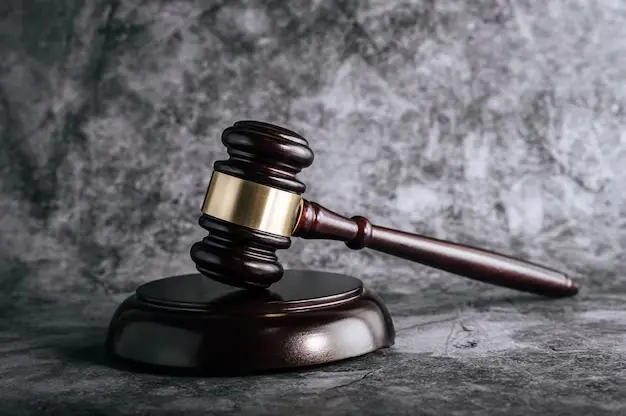
In the aftermath of an accident or injury, seeking legal representation becomes a pivotal step in navigating the complexities of personal injury claims. The choice of a personal injury lawyer can significantly impact the outcome of your case. It’s essential to consider several factors to ensure you find the right legal advocate who can effectively handle your situation. Here are some critical elements to weigh when selecting a personal injury lawyer.
1. Experience and Expertise
An attorney’s experience in handling personal injury cases is paramount. Look for a lawyer with a proven track record in this field. Consider their expertise in specific types of injuries or accidents, such as car accidents, medical malpractice, workplace injuries, or premises liability. Experience equips lawyers with insights, strategies, and a deeper understanding of legal procedures, increasing the chances of a favorable outcome.
2. Reputation and Reviews
Analyze the lawyer’s reputation within the legal community and among previous clients. Online reviews, testimonials, and referrals can offer valuable insights into their professionalism, communication skills, and success rate. Seek out independent review platforms or bar association websites to gather unbiased opinions about the lawyer’s performance.
3. Resources and Team
Assess the firm’s resources and support staff. A well-established law firm with ample resources, such as access to expert witnesses, investigative teams, and sufficient manpower, can bolster your case. A dedicated team working on your behalf can enhance the effectiveness and efficiency of legal proceedings.
4. Communication and Compatibility
Effective communication is key to a successful attorney-client relationship. Ensure the lawyer is attentive to your concerns, communicates clearly, and keeps you informed about the progress of your case. Additionally, compatibility in terms of approach, values, and goals is crucial for a harmonious working relationship.
5. Fee Structure and Costs
Understand the lawyer’s fee structure before entering into an agreement. Some attorneys work on a contingency fee basis, where they only receive payment if they win the case. Others might charge hourly rates or flat fees. Clarify all potential costs associated with the case, including court fees and other expenses, to avoid any surprises later on.
6. Trial Experience
While many personal injury cases settle outside of court, having a lawyer with trial experience is invaluable. A lawyer willing to take your case to trial demonstrates preparedness and confidence, which can sometimes lead to more favorable settlement negotiations.
7. Accessibility and Availability
Consider the lawyer’s availability and accessibility. You want a lawyer who is responsive to your inquiries and available to provide guidance throughout the legal process. Knowing that your attorney is there to address your concerns can alleviate stress during a challenging time.
8. Gut Feeling and Comfort Level
Trust your instincts. Beyond credentials and experience, feeling comfortable and confident in your lawyer’s abilities is crucial. A genuine connection and a sense of trust can contribute significantly to the working relationship and the overall success of your case.

Strategies by Experienced Injury Attorneys
Experienced injury attorneys employ several strategies to effectively represent their clients and secure favorable outcomes in personal injury cases:
- Thorough Case Investigation: Before anything else, seasoned attorneys conduct meticulous investigations into the incident. They gather evidence, interview witnesses, review medical records, and consult with experts to build a robust case foundation. This comprehensive approach strengthens their legal arguments and prepares them for negotiations or trial.
- Strategic Negotiation Skills: Skilled injury attorneys are adept negotiators. They engage with insurance companies or opposing counsel to pursue fair settlements for their clients. Their in-depth knowledge of the law and case specifics allows them to present compelling arguments, maximizing the chances of reaching favorable agreements without the need for protracted court battles.
- Aggressive Advocacy: When negotiations don’t yield satisfactory results, experienced attorneys are ready to take the fight to court. They prepare diligently for trials, presenting evidence persuasively and advocating fiercely for their clients. Their courtroom experience and confident presentation often contribute to favorable judgments or settlements before trial.
- Understanding of Medical Aspects: Comprehending the medical intricacies related to an injury is crucial. Skilled attorney collaborate with medical professionals to understand the extent of their clients’ injuries, ensuring all relevant details are accurately presented in legal proceedings. This understanding helps in portraying the full impact of the injury and its long-term consequences.
- Client-Centered Approach: Experienced attorneys prioritize their clients’ well-being. They maintain open communication, keeping clients informed about case developments and patiently addressing their concerns. By empathetically understanding their clients’ suffering and needs, these attorneys craft legal strategies tailored to each client’s unique situation.
- Utilization of Experts: Seasoned injury attorneys often work with a network of experts, such as accident reconstruction specialists, medical professionals, economists, and vocational rehabilitation experts. Leveraging these resources strengthens their case by providing expert opinions that support their arguments and bolster credibility.
- Documentation and Preparation: They emphasize the importance of thorough documentation. This includes keeping detailed records of medical bills, treatment expenses, lost wages, and any other relevant costs incurred due to the injury. This meticulous approach ensures that no crucial information is overlooked when seeking compensation.
Conclusion
Selecting the right personal injury lawyer involves careful consideration of multiple factors. Your choice can profoundly impact the trajectory of your case and the compensation you receive. By prioritizing experience, reputation, communication, and compatibility, you can make an informed decision that aligns with your needs and maximizes the chances of a favorable resolution. Remember, conducting thorough research, meeting with potential lawyers for consultations, and asking pertinent questions are crucial steps in finding the best legal representation for your specific situation. By utilizing these essential factors as a guideline, you can navigate the process of choosing a personal injury lawyer with confidence and clarity.
